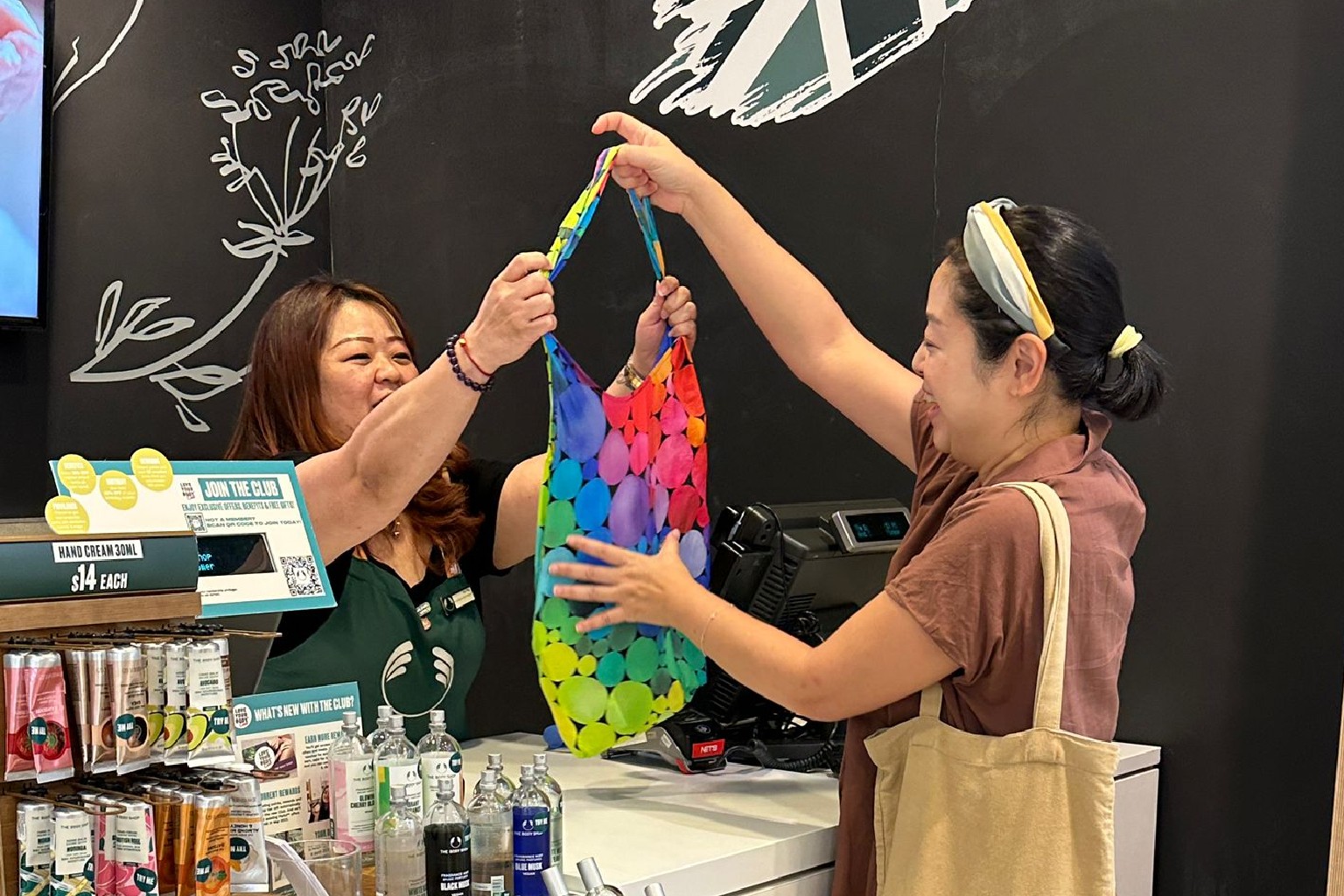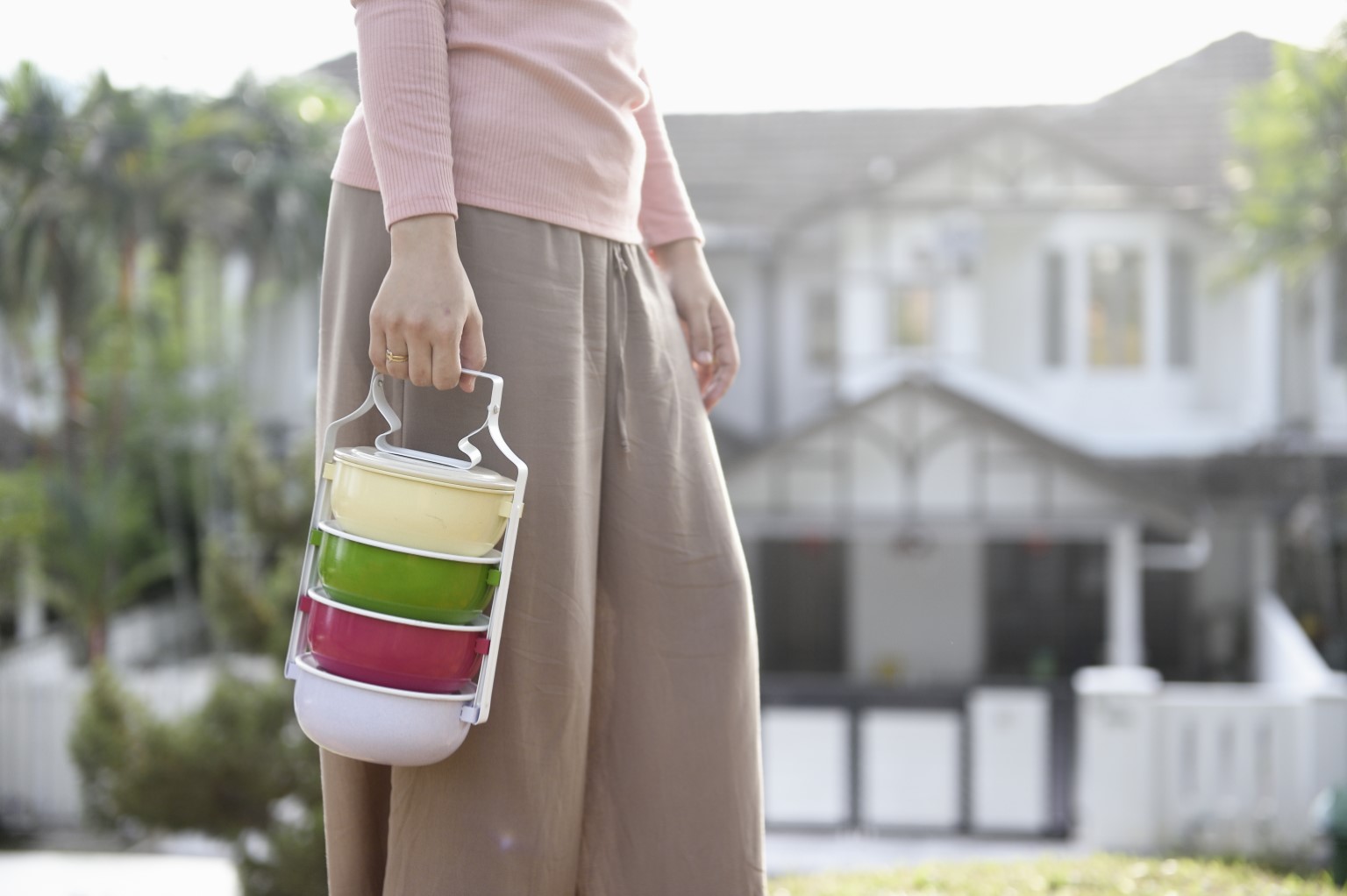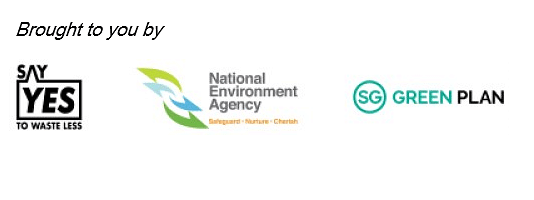BRANDED CONTENT
Bring your own takeaway containers, reusable shopping bags: She's proof you can cut plastic waste easily
With Singapore's only landfill expected to be filled by 2035, NEA is calling on everyone to do their part to extend its lifespan

Avoiding disposables may take a bit of work, but practising small habits can add up to make a big difference, says Ms Karen Kwek (right). PHOTO: THE BODY SHOP
At home, Ms Karen Kwek sorts the packaging from her purchases, washes out bottles, cans and other receptacles, sets the items aside and takes them to a recycling bin when she has a sizeable collection.
When she goes out, she makes sure to have a reusable bag for shopping and a water bottle for takeaway drinks. When she and her husband order food for pick-up, she calls and alerts the restaurants that they will come ahead of time with reusable containers for the food.
The 47-year-old general manager of beauty brand The Body Shop Singapore says that her habits to reduce the amount of disposables she throws away, which include buying products with little to no packaging, have inspired her siblings and in-laws to curb waste in their households.
“We try to do these small things for the environment because we can make them part of our daily lives. I think more people are conscious of the need to be more sustainable these days. When I bring my food carrier to the hawker centre, I see other people in line with their own reusable containers too,” she adds.
As Singapore takes aim at its waste to prolong the lifespan of Semakau Landfill, its last remaining landfill, disposables are a top target. Such items include single-use bags and styrofoam boxes. From 2019 to 2021, households and stores in Singapore binned 200 million kg of disposables annually. This amounts to 23,000kg an hour, 400kg a minute and 6kg a second.
While the Government has announced and rolled out initiatives to tackle such waste – including requiring large supermarket chains to charge shoppers at least five cents for each disposable carrier bag that they take, from the middle of this year – people can do their part by cultivating greener habits too.
Such collective effort is crucial to achieving the Government’s goal of decreasing the amount of waste sent to Semakau Landfill by 20 per cent per person per day by 2026, and by another 10 per cent by 2030. The landfill will be completely filled by 2035 if nothing is done to change Singapore’s current rate of waste generation.
With the latest edition of its Say YES to Waste Less (SYTWL) campaign, which counts The Body Shop as one of the partners, the National Environment Agency hopes to persuade more people to minimise their food wastage, another large source of waste, and avoid disposables, like Ms Kwek.

Turning to reusable food containers is one way to avoid disposables. PHOTO: GETTY IMAGES
“There are lots of things that you can do if you put your mind to it,” she says. “You do need to put in a bit of work, and to communicate more, for example to the cashier or hawker that you have your own mug or container, but it’s worth it.”
Making a dent in disposables
Ms Kwek was not active in practising these habits two years ago. She credits her work at The Body Shop for sparking her environmental journey.
“When I joined the company in 2021, I became much more aware of how it has continuously improved its sustainability over the years. I also got a great education from our retail teams, who really walk the talk. You don’t see anyone drinking from a disposable cup or bottle. That motivated me to do better too,” she explains.
Most of The Body Shop’s products are sold without boxes to eliminate packaging waste. Since late 2019, it has also installed a recycling bin in every outlet for customers to drop off used products from the company. It has collected and recycled 6,325kg of plastic waste to date.
Starting from 2021, it has launched refill stations in 23 of its outlets for shoppers who have their refill bottles from their previous purchases.
It will add a new refill station at its store in the Paya Lebar Quarter Mall this year. The number of customers using the stations has increased by 2.5 times since the beginning of the initiative.
Furthermore, The Body Shop recently introduced a range of make-up products, including compacts and lipsticks, that can be refilled with the same or different options. Ms Kwek says: “We want our customers to know that the products’ casings are things that can be saved, reused and recycled.”
As The Body Shop continues to look for ways to shrink its carbon footprint for the benefit of the environment, Ms Kwek has more personal goals in mind too. “I still use disposable cutlery sometimes because I haven’t gotten used to carrying and washing my own utensils, so that may be my next step,” she shares. “For me, sustainability starts by looking at what you use, and with the little habits that can add up to make a big difference.”
Visit www.go.gov.sg/sytwli to find out the incentives that SYTWL partners have to offer.



